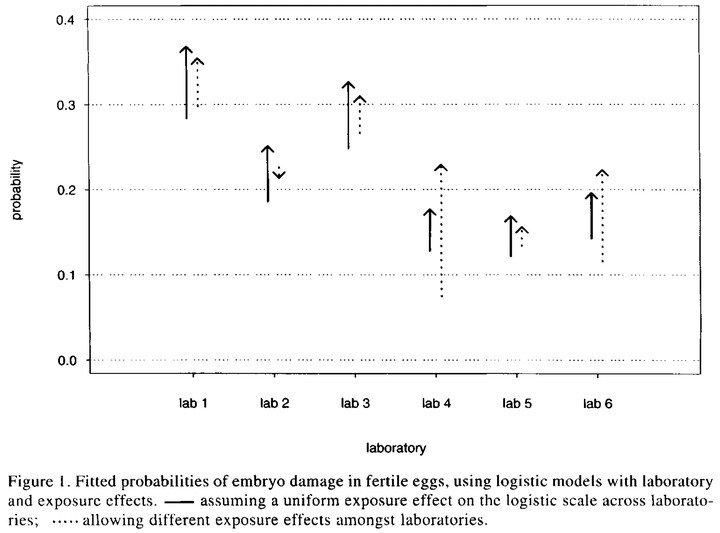Statistical Review of the Henhouse experiments: The Effects of a Pulsed Magnetic Field on Chick Embryos

Abstract
This paper analyzes data from a study conducted by the United States Office of Naval Research on the effects of pulsed magnetic fields on chick embryos. The experiment involved incubation of eggs under carefully controlled conditions in six different laboratories. The original analysis included inappropriate statistical methodology for analyzing the experimental results. Since the conclusions from this study rest so heavily on the results of statistical analyses, choosing the proper methodology is imperative. The major aim of this paper then is to introduce more appropriate analytic tools and illustrate their use in the present context. Qualitatively our results agree with those of the original analysis; our findings about interactions between effects, however, makes interpretation of these effects more subtle. We apply linear logistic modeling to counts of damaged embryos, using as covariates factors corresponding to exposure, laboratory, incubator, run, and measurements of background radiation. This facilitates estimation of the size of the effects. The effects of laboratory, incubator, and run are explored both as fixed and random effects. We find statistically significant exposure and laboratory effects, in accordance with the original study. However, we also find that the inter-laboratory variation in exposure effect is at least as large as the exposure effect itself. The presence of such effects fundamentally alters the interpretation of the fitted model, as is graphically presented.